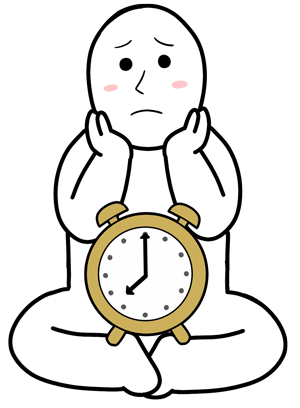| Simple Present or Present Simple |
- every day
- sometimes
- always
- often
- usually
- seldom
- never
- first ... then
|
- something happens repeatedly
- how often something happens
- one action follows another
- things in general
- with the following verbs (to love, to hate, to think, etc.)
- future meaning: timetables, programmes
| infinitive(he/she/it) + -s | I work. | I don'twork. | Do I work? |
| He works. | He doesn'twork. | Does he work? |
| I go. | I don't go. | Do I go? |
| He goes. | He doesn'tgo. | Does he go? |
Present
Progressive or
Present Continuous |
- now
- at the moment
- Look!
- Listen!
|
- something is happening at the same time of speaking or around it
- future meaning: when you have already decided and arranged to do it (a fixed plan, date)
| to be (am/are/is)+ infinitive+ -ing | I'mworking. | I'm notworking. | Am Iworking? |
| He'sworking. | He isn'tworking. | Is he working? |
| I'm going. | I'm notgoing. | Am I going? |
| He's going. | He isn'tgoing. | Is he going? |
| Simple Past or Past Simple |
- last ...
- ... ago
- in 1990
- yesterday
| action finished in the past, mostly connected with an expression of time (no connection to the present) |
- regular: infinitive + -ed
- irregular: 2nd column of table of irregular verbs
| I worked. | I didn'twork. | Did I work? |
| He worked. | He didn'twork. | Did he work? |
| I went. | I didn'tgo. | Did I go? |
| He went. | He didn'tgo. | Did he go? |
Past
Progressive or
Past Continuous | while |
- an action happened in the middle of another action
- someone was doing sth. at a certain time (in the past) - you do not know whether it was finished or not
| was/were+ infinitive+ -ing | I wasworking. | I wasn'tworking. | Was Iworking? |
| He wasworking. | He wasn'tworking. | Was he working? |
| I was going. | I wasn'tgoing. | Was I going? |
| He wasgoing. | He wasn'tgoing. | Was he going? |
Simple
Present
Perfect
or
Present
Perfect |
- just
- yet
- never
- ever
- already
- so far
- up to now
- since
- for
- recently
|
- you say that sth. has happened or is finished in the past and it has a connection to the present
- action started in the past and continues up to the present
| have/has +past participle* | I haveworked. | I haven'tworked. | Have Iworked? |
| He hasworked. | He hasn'tworked. | Has he worked? |
| I havegone. | I haven'tgone. | Have I gone? |
| He hasgone. | He hasn'tgone. | Has he gone? |
| Present Perfect Progressive or Present Perfect Continuous |
- all day
- the whole day
- how long
- since
- for
|
- action began in the past and has just stopped
- how long the action has been happening
- emphasis: length of time of an action
| have/has + been + infinitive + -ing | I have beenworking. | I haven'tbeenworking. | Have I beenworking? |
| He hasbeenworking. | He hasn'tbeenworking. | Has he beenworking? |
| I have beengoing. | I haven'tbeengoing. | Have I beengoing? |
| He hasbeen going. | He hasn'tbeengoing. | Has he beengoing? |
| Simple Past Perfect or Past Perfect (Simple) |
|
- mostly when two actions in a story are related to each other: the action which had already happened is put into Past Perfect, the other action into Simple Past
- the past of Present Perfect
| had + past participle* | I hadworked. | I hadn'tworked. | Had Iworked? |
| He hadworked. | He hadn'tworked. | Had he worked? |
| I had gone. | I hadn'tgone. | Had I gone? |
| He hadgone. | He hadn'tgone. | Had he gone? |
| Past Perfect Progressive or Past Perfect Continuous |
| how long something had been happening before something else happened | had + been+ infinitive+ ing | I had beenworking. | I hadn'tbeenworking. | Had I beenworking? |
| He hadbeenworking. | He hadn'tbeenworking. | Had he beenworking? |
| I had beengoing. | I hadn'tbeengoing. | Had I beengoing? |
| He hadbeen going. | He hadn'tbeengoing. | Had he beengoing? |
| will - future | |
- predictions about the future (you think that sth. will happen)
- you decide to do sth. spontaneously at the time of speaking, you haven't made a decision before
- main clause in type I of the if clauses
| will + infinitive | I'll work. | I won'twork. | Will I work? |
| He'll work. | He won'twork. | Will he work? |
| I'll go. | I won'tgo. | Will I go? |
| He'll go. | He won'tgo. | Will he go? |
| going to - future | |
- when you have already decided to do sth. in the future
- what you think what will happen
| to be (am/are/is)+ going to + infinitive | I'm going to work. | I'm notgoing to work. | Am I going to work? |
| He's going to work. | He's notgoing to work. | Is he going to work? |
| I'm going to go. | I'm notgoing to go. | Am I going to go? |
| He's going to go. | He's notgoing to go. | Is he going to go? |
| Future Progressive or Future Continuous | |
- An action will be in progress at a certain time in the future. This action has begun before the certain time.
- Something happens because it normally happens.
| will + be + infinitive + ing | I'll beworking. | I won't beworking. | Will I beworking? |
| He'll beworking. | He won'tbeworking. | Will he beworking? |
| I'll begoing. | I won't begoing. | Will I begoing? |
| He'll begoing. | He won'tbe going. | Will he begoing? |
| Simple Future Perfect or Future Perfect Simple | | sth. will already have happened before a certain time in the future | will + have+ past participle* | I'll haveworked. | I won'thaveworked. | Will I haveworked? |
| He'll haveworked. | He won'thaveworked. | Will he haveworked? |
| I'll havegone. | I won'thavegone. | Will I havegone? |
| He'll havegone. | He won'thavegone. | Will he havegone? |
| Future Perfect Progressive or Future Perfect Continuous | |
- sth. will already have happened before a certain time in the future
- emphasis: length of time of an action
| will + have+ been + infinitive + ing | I'll have beenworking. | I won'thave beenworking. | Will I havebeenworking? |
| He'll havebeenworking. | He won'thave beenworking. | Will he havebeenworking? |
| I'll havebeen going. | I won'thave beengoing. | Will I havebeenworking? |
| He'll havebeen going. | He won'thave beengoing. | Will he havebeenworking? |
| Conditional Simple | |
- sth. that might happen
- main clause in type II of the Conditional sentences
| would + infinitive | I wouldwork. | I wouldn'twork. | Would I work? |
| He wouldwork. | He wouldn'twork. | Would he work? |
| I would go. | I wouldn'tgo. | Would I go? |
| He wouldgo. | He wouldn'tgo. | Would he go? |
| Conditional Progressive or Conditional Continuous | |
- sth. that might happen
- emphasis: length of time of an action
| would + be+ infinitive+ ing | I would beworking. | I wouldn'tbeworking. | Would I beworking? |
| He would beworking. | He wouldn'tbeworking. | Would he beworking? |
| I would begoing. | I wouldn'tbe going. | Would I begoing? |
| He would be going. | He wouldn'tbe going. | Would he begoing? |
| Conditional Perfect | |
- sth. that might have happened in the past (It's too late now.)
- main clause in type III of the if clauses
| would + have + past participle* | I would haveworked. | I wouldn'thaveworked. | Would I haveworked? |
| He would haveworked. | He wouldn'thaveworked. | Would he haveworked? |
| I would have gone. | I wouldn'thavegone. | Would I havegone? |
| He would have gone. | He wouldn'thavegone. | Would I havegone? |
| Conditional Perfect Progressive or Conditional Perfect Continuous | |
- sth. that might have happened in the past (It's too late now.)
- emphasis: length of time of an action
| would + have + been + infinitive + ing | I would have beenworking. | I wouldn'thave beenworking. | Would I havebeenworking? |
| He would have beengoing. | He wouldn'thave beengoing. | Would he have beenworking? |
| I would have beengoing. | I wouldn'thave beengoing. | Would I havebeen going? |
| He would have beengoing. | He wouldn'thave beengoing. | Would he have beengoing? |


